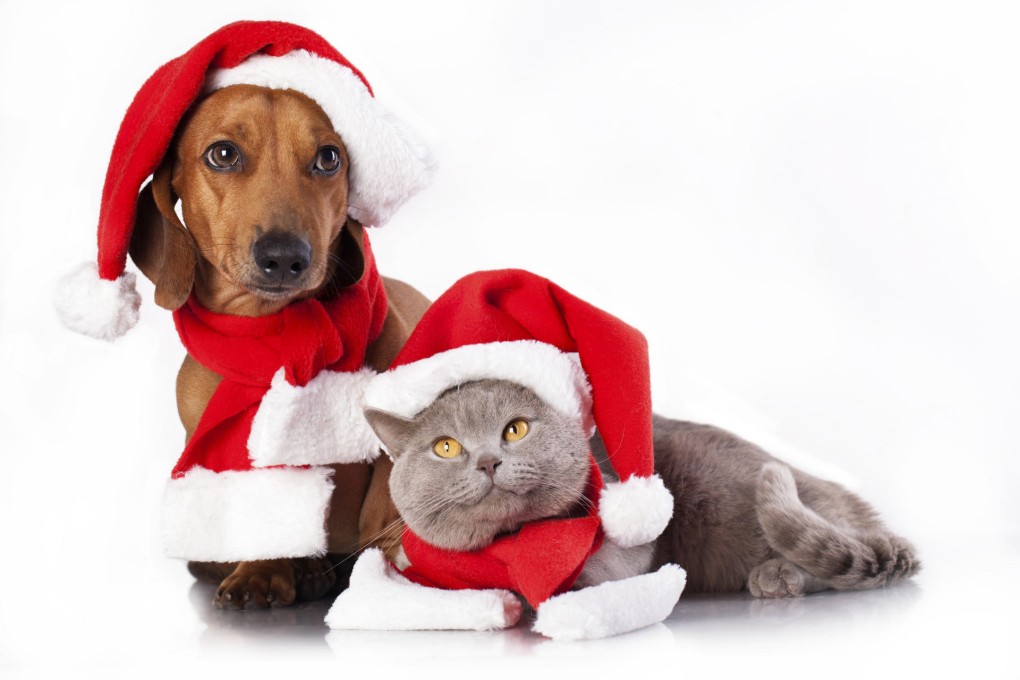
Christmas can be as enjoyable and happy for pets as it is for the many people who celebrate it - owners spend more time at home, everybody is in a good mood and there's often extra food or treats on offer. They may even get to help open the presents. However, to ensure that your pets, especially cats and dogs, enjoy this festive time there are a few things to note.
The first, says veterinarian David Gething, of Creature Comforts, is toxicity and poisoning which is common over the Christmas period, although the good news is that it is usually easily treatable.
One Christmas source of this are plants that can be toxic to pets, including poinsettias - the red and green Christmas shrubs sold widely in Hong Kong during the festive season - holly and mistletoe. Common signs of toxicity include drooling, rubbing at the mouth, vomiting, diarrhoea and shivering.
"Cats seem particularly drawn to chewing on new plants in the house. Christmas trees [pine trees] are not toxic, but some cats seem to have a taste for the pine needles, which will cause an upset stomach," Gething says.
Some food items such as onions, garlic, chocolate and macadamia nuts are also toxic in large amounts. "I do see cases of poisoning during this time. For example, when leftovers containing toxic food from the family dinner are given to the dog as a treat," the vet says.
If an owner suspects a case of festive toxicity, Gething says to call the vet immediately. "Treatment for mild cases is very simple, but getting therapy started early can make a huge difference," he says. "And the best solution is prevention - keep potentially dangerous plants and food out of the way of dogs and cats."